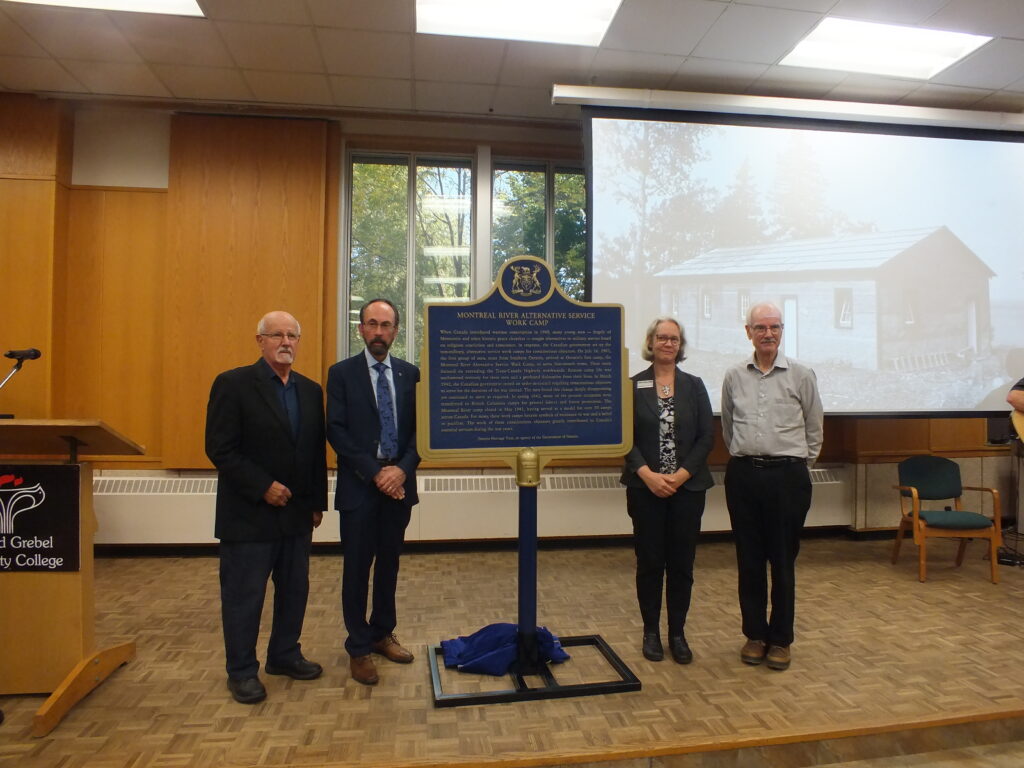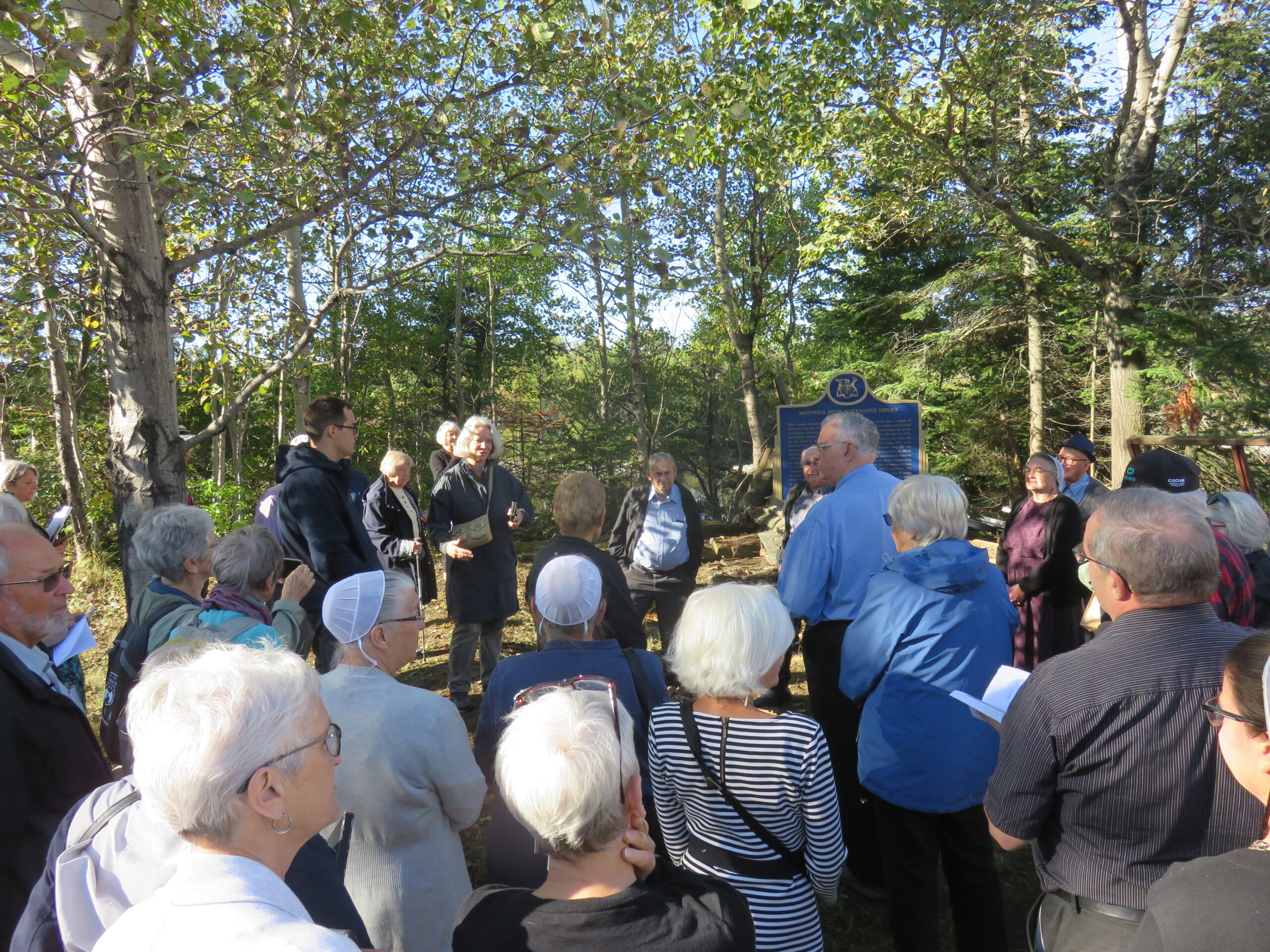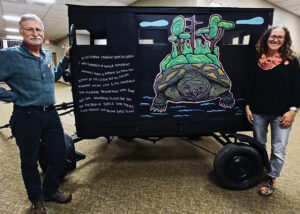Descendants of conscientious objectors (COs) gathered around a new plaque to permanently mark the location of the Montreal River Alternative Service Camp. More than 50 people made the two-day bus trip to Montreal River, 120 kilometres north of Sault Ste. Marie, Ontario, on the shore of Lake Superior, to participate in this event Sept. 28, 2024, organized by the Mennonite Historical Society of Ontario (MHSO).

An official unveiling of the plaque took place at Conrad Grebel University College, Waterloo, Ont., two days earlier where the Great Hall was filled with people who also wanted to acknowledge this first alternative service camp during the Second World War. Although it was open for less than two years, Montreal River served as a model for over 50 camps across Canada where COs did civilian work instead of going to war.
For many Mennonite and Amish farm boys, their experience at this camp in the early 1940s changed their lives. Not only did it broaden their worldview and give them life-long friendships, but being at the camp also made them to think about their beliefs and to recognize the importance of serving others. The long-term friendships across denominations and the examination of pacifist beliefs also had a major impact on churches.
One of those impacts was greater inter-Mennonite cooperation. Darrell Frey, author of Called to be a Soldier: Experiences of COs at Alternative Service Camps During WWII (2014), commented at the plaque installation that the success of the New Hamburg Mennonite Relief Sale was partly due to Montreal River. In the 1960s, when Ward Shantz, the first chair of the relief sale board, needed to get Mennonites to work together for this project, he knew lots of people to call on, Mennonites of all kinds who knew each other and trusted each other because of Montreal River friendships.
This first camp was also an important step in the negotiation between COs and the Canadian government. In late 1940 an agreement was reached that COs could work in non-military, alternative service camps instead of doing four months of military training. On July 16, 1941, the first group of 53 men arrived in the remote location of Montreal River to work at extending the Trans-Canada highway. At Montreal River the COs cleared rocks and trees and shovelled gravel.
Though the young men recognized at the time that in one sense their work was useless—the monotonous work could have been done more efficiently with machinery and in the end the highway did not use much of the path they had cleared—they did the work they were assigned and left a positive impression on the government.
Smaller camps opened in other parts of the country to do fire-fighting and other duties. Later in the war, supervision of COs was moved to the Ministry of Labour, and the young men worked mostly in agriculture where their labour was essential.
Among those who travelled to Montreal River for the plaque installation were three Burkholder sisters, and a stack of their father’s letters written during his time at the camp. One of Leonard Burkholder’s letters from 1942 was read during the installation, explaining that the night before the young men were to return home, they had received shocking news that they were required to serve for the duration of the war.
Before the plaque was installed, all that remained at the Montreal River site (now the Twilight Resort) were a few decaying logs of the bunkhouse. Although the buildings have disappeared and the men who served there are no longer with us, the plaque is a permanent reminder of those who served there and what it means to be a conscientious objector to war.
The plaque unveiling was led by representatives of the Ontario Heritage Trust under whose guidance the plaque was created. Many thanks go to the owners of Twilight Resort who gave permission to have the plaque installed their property and to Laureen Harder-Gissing, chair of MHSO, and other MHSO members for organizing the two events.








Leave a Reply
You must be logged in to post a comment.